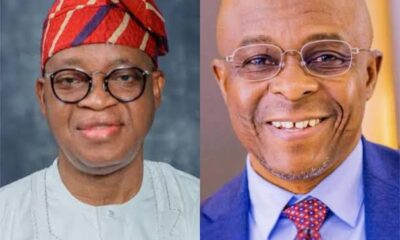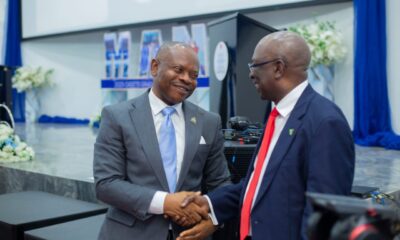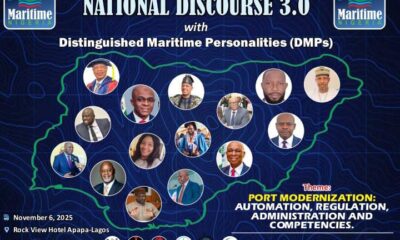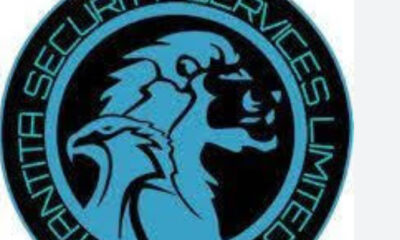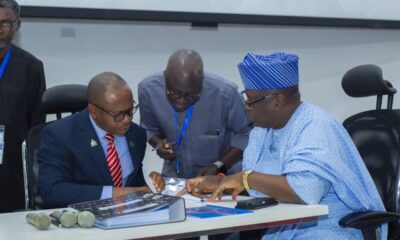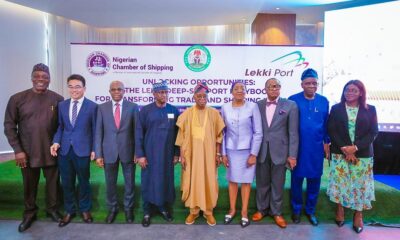Business
Operators Task FG To Recommit To Port Modernization
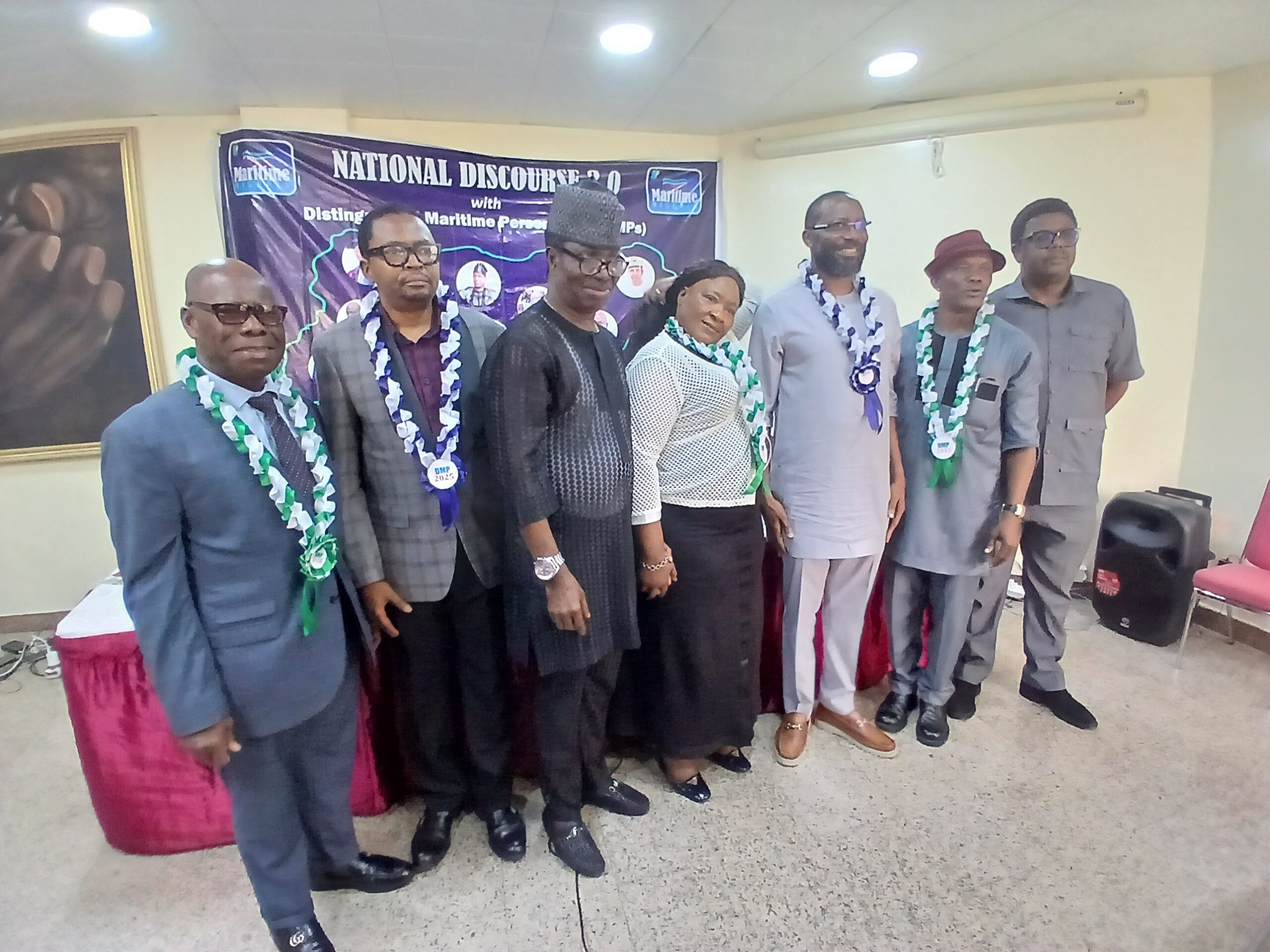
…As Tompolo, Olusegun, Umoren, Macfoy, Enisuoh Receive DMPs Awards
BY EGUONO ODJEGBA
The Nigeria maritime future, yesterday, unfolded with urgency and optimism as stakeholders and industry icons rallied under the theme: “Port Modernization: Automation, Regulation, Administration and Competencies” and nder the auspices of the 2025 National Discourse held at the Rockview Hotel, GRA Apapa, Lagos.
The event, hosted by Maritime Nigeria and its affiliates, became a clarion call for the Federal Government to recommit to transformative port reforms.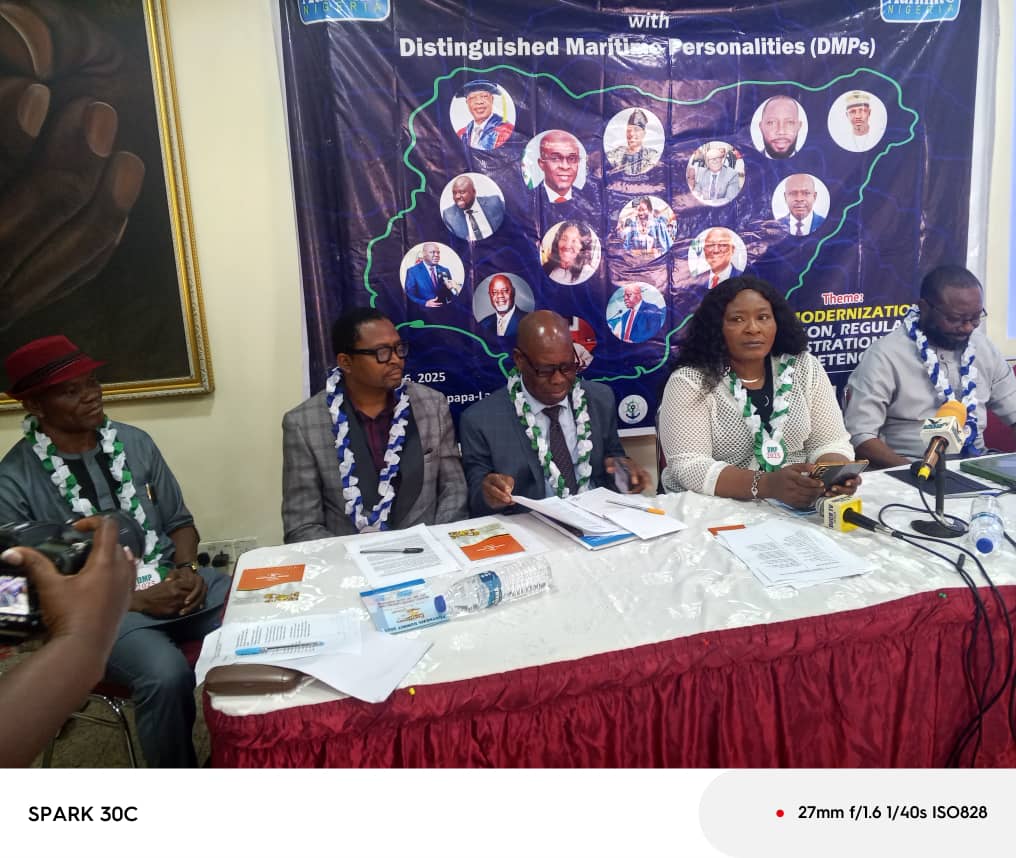
Welcoming participants, Kelvin Kagbare, Managing Director of Maritime Nigeria, described the discourse as a movement and an urgent quest in dire search of transformation; and a convergence for the celebration of Nigeria’s finest maritime minds, whose legacies continue to shape the sector, and who are carefully selected for honour as Distinguished Maritime Personalities (DMPs).
Among the decorated DMPs were High Chief Government Ekpemupolo (Tompolo), Mrs. Mcfoy Rollens, Captain (Dr.) Warredi Enisuoh, Dr. Oluwasegun Musa, and Captain Sunday Umoren—each recognized for their pivotal roles in maritime safety, administration, and innovation.
Delivering a thought-provoking paper, Captain Enisuoh, Executive Director of Operations at Tantita Security Services Ltd, spoke on the challenges and prospects of automating Nigeria’s ports and related systems.
Taking participants through a well packaged presentation vide power point, he explained that port automation is realized via three interconnected stages — offshore, terminal yard and hinterland—each requiring strategic planning and seamless coordination.
He expressed optimism that whereas Nigeria has the potential to achieve port modernization driven by digitalization and automation, he however cautioned against forcing modernization within the existing old port , just as he warned that current urban encroachment around ports and terminals complicate automation efforts.
According to him, “the best and cheapest way to achieve full automation is through green field projects,” which allow planners to design ports from scratch with integrated systems and space optimization.
He also highlighted the importance of aligning port automation with hinterland logistics, noting that automation inside the port would fail if evacuation systems outside remain inefficient. This is even as he noted that the Nigerian Ports Authority (NPA) has made significant strides toward modernization and security, attributing improved safety in the Niger Delta region to better socioeconomic conditions, job creation, and coordinated efforts between government and private stakeholders.
Captain Sunday Umoren, Secretary General of the Abuja MoU, delivered a stirring presentation on the strategic importance of port modernization revealed that Africa loses $2.5 billion annually to port inefficiencies and emphasized that digitalized ports could cut vessel turnaround time by 65% and operational costs by as much as 25%, while citing Lekki Deep Seaport as a reflection of true modern port system and as a beacon of progress powered by automation with enhanced deep-water capacity.
Captain Umoren who was represented by Mr. Richard Owolabi, called for investment in digital skills, noting that over 40% of port jobs now require tech proficiency, yet fewer than 30% of workers in developing regions are trained. He also highlighted Nigeria’s alignment with the IMO’s Green Shipping Agenda and the advancement of strategic projects like the Port Community System and National Single Window.
“The modernization of our ports is, at its core, the modernization of our destiny… Let us make our ports the pride of Africa and the promise of its future”, he urged stakeholders.

Also delivering a paper where he laid out a comprehensive roadmap to reposition Nigeria’s ports to serve as global competitive hub, Dr. Oluwasegun Musa, Chairman of Widescope International Group, presented four-pillar strategy which includes:
Administration: Adoption of the Landlord Port Model and creation of an Independent Economic Regulator.
Digitalization: Full implementation of the National Single Window by Q1 2026 and a paperless mandate across agencies.
Automation: Full automation for Greenfield ports like Lekki, and phased upgrades for Brownfield ports such as Apapa and Tin Can.
Competency Development: Launch of a National Skills Program and retraining initiatives to bridge the maritime tech gap.
Represented by Mike Onoche, the respected and cerebral logistics consultant warned that Nigeria’s ports currently cost the economy over ₦1 trillion annually due to inefficiencies, with cargo dwell times exceeding 21 days. He urged synchronized reforms, citing global success stories like Tanger Med in Morocco and
in Senegal.
“Isolated tech fixes won’t suffice. With the right partnerships, governance, and human capital investment, Nigeria can evolve from a bottleneck economy into a regional and global trade powerhouse”, he said.
Mrs. Rollens Macfoy, President of Women in Maritime (WIMA) Nigeria, who also delivered a compelling presentation on Nigeria’s port evolution, traced the Nigerian Ports Authority’s journey from a cargo handler in 1955 to a regulatory landlord post-2006 concessioning, now overseeing key ports including Apapa, Tin Can Island, Port Harcourt, and Lekki Deep Sea Port.
She explained that between 2023 and 2024, Nigerian ports witnessed 5.6% increase in ship calls, 15.4% rise in Gross Registered Tonnage, 9.7% growth in container throughput, 53.7% surge in export-laden containers, and 136.5% spike in transshipment traffic.
Despite noting that ETO electronic truck call-up system is critical for achieving efficiency and transparency like other forms of modernization such as digital shipping notices and robotic cargo handling, she wondered aloud if ETO is fulfilling its role as it should.
She also addressed infrastructure gaps, noting ongoing rehabilitation efforts and the importance of multimodal linkages—especially rail—to support hinterland cargo movement; also noting that Free Trade Zones are investment destinations serving as economic magnets but which depends on land allocation for ancillary facilities and infrastructure expansions.
On regulation, Macfoy advocated for the 2023 Nigerian Shipping and Port Economic Regulatory Agency Bill to modernize governance and enhance oversight.
“Operational efficiency hinges on strategic decision-making, collaboration, and adaptability. We must train personnel to global standards, embrace cyber security, and elevate customer engagement.”

